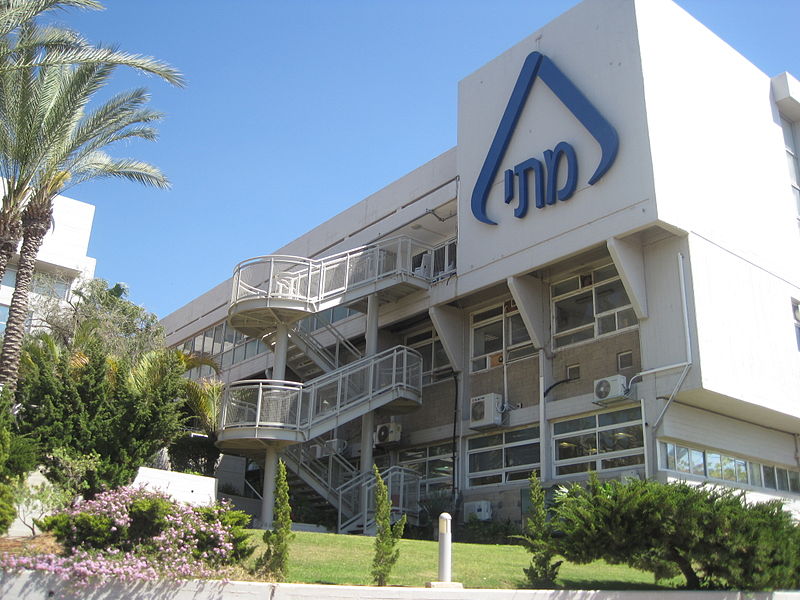If you were dictator of Israel, what would you do? Economist Gilad Alper would free the economy with a few swift strokes of the pen.
The fractured nature of the Israeli political system prevents bold economic reforms · But let’s imagine a dictator were to take over tomorrow: what reforms must he do to bring about the desired change? · Economist Gilad Alper offers five grand steps to a flourishing Israeli economy

The word “dictator” brings up images of vicious and ruthless tyrants. But, originally, the Dictator was a perfectly legitimate job description in the Roman Republic. The Senate appointed the dictator and gave him authority beyond the usual legal limits. This would take place in time of crisis, especially a hard war, when the standard democratic decision-making process was considered too slow and cumbersome.
Many believe that Israel is suffering from a severe socio-economic crisis which the political system is having trouble solving. If we were living in a Roman-style regime, this might be the time for the Senate to appoint a dictator to solve the problem. Setting aside the obvious question of how we assure the dictator steps down at the appointed time, what could such a person do to solve the crisis?
Taxes, Customs, and the Standards Institution of Israel
I can tell you what I would do if I were dictator:
First, I’d abolish the Corporate Tax for the hundreds of thousands of businesses in the country, from grocery stores to Intel plants. The corporate tax is one of the stupidest taxes around: it prevents investment, the opening of new businesses, and the expansion of existing ones, thereby harming employment. Abolishing the corporate tax would attract businesses from all over the world to Israel, increase productivity and competition for human capital, and raise salaries for everyone.
Abolishing the corporate tax would also provide a response to the legitimate complaints about the low rates paid by big companies as opposed to high rates paid by small businesses. Those worried about the reduction in tax revenues should rest assured: Corporate tax revenue amounts to only about 10% of state revenue; the economic windfall that would come in its wake would more than make up for the loss, for both citizens and the state.
Next, I would abolish Import Customs. No more futzing around with increasing customs here and lowering it there or setting all kinds of quotas. Get rid of it entirely. In addition, I would abolish the Standards Institution of Israel which has become a clever device to protect local industry from foreign competition, costing the consumers more and inhibiting their access to quality and low-cost goods from abroad. European or American standards are more than sufficient to ensure the safety and quality of these goods. If it’s good enough for them, it’s good enough for us. Abolishing customs will not only lead to a drop in the cost of living but also a rise in the variety and quality of products of all kinds. Businesses that exist solely thanks to import duties are ripping us off; those that aren’t can and will adapt to a world without protectionism.

But customs aren’t the only policies driving up the cost of living. The high cost of housing is largely due to state control of 93% of land and the planning committees, a cumbersome bureaucratic mechanism which only benefits the clerks who work there. The dictatorial solution? Selling all the land to all who are interested and disbanding the planning committees. Let the citizens build houses and businesses. Release us from the stranglehold of bureaucrats.
Equal Education: Not What You Think
Let’s finish with the most challenging but perhaps the most important issue: education. The educational system is a clumsy behemoth because it is a state monopoly. The only solutions the present system can provide waste buckets of money on pathetic and ineffective “reforms.” The real solution is increasing competition and breaking the government stranglehold. We can achieve this through the voucher system – an equal distribution of tax money to parents that is to be used to send their children to a private school of their choosing.
There is no more effective way to close socio-economic gaps than to improve the education of children whose parents can’t afford tutors or summer school. Of course, like elsewhere, the teachers’ union will do everything it can to prevent such a change, but dictators need not take account of such things.
There are many more things a dictator could do, but the steps I laid out are enough to turn Israel into one of the most flourishing and wealthy countries in the world. By the way, in order to carry out these steps – especially those related to taxes – there’s no need for a dictator, just a brave Prime Minister. The problem is that the odds of that are the same as me being named dictator…
Gilad Alper is an analyst with Excellence-Nessuah Brokerage
English translation by Avi Woolf.
To receive updates on new articles in English, join Mida on Facebook or Twitter or join our mailing list.




You’re missing the most important thing: Government control over the number of people allowed to participate in key industries.
How many dairy companies are there in Israel? How many cell phone companies? How many internet companies? How many television channels? How many universities (you touched lightly on this)? The answer to all this is the same: the number the government has decided in advance.
The system by which you must first convince the government that there exists a need for another company in your field, only after which you can bid against other people for the right to become that company, is the single largest contributing factor to the monopolization of power in the hands of the much-maligned “tycoons”. Because they’re the ones who will always win that bid.
In a normal country, other people can start competing companies freely.
As regards free imports and the standards institute, the writer says European and US standards are good enough for us. But what if all the imports came from China or India or other (less well regulated countries?